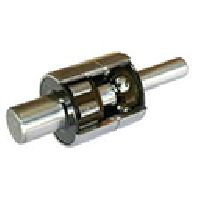
Water Pump Bearings
Water pump bearings do not have an inner ring but instead have raceways directly machined into the shaft. As a result, there is more space available for the rolling elements, giving a higher load carrying capacity than in solutions with conventional single bearings. In water pump bearings, rows of balls and rollers can be economically combined with each other. This gives a broad range of load carrying capacity values.
...more
Valve Tapet
The term tappet is widely used in relation to internal combustion engines, but imprecisely. It is most commonly encountered as a maintenance task for overhead valve engines, that of 'adjusting the tappets'. This operation adjusts the overall clearance in the valve actuation system: typically 20 thousandths of an inch (0.5 mm). The name arises because it is the clearance of the tappets that is being adjusted, even though the adjustment is not made to the tappets themselves.
...more
Piston Valves
Piston valves are one form of valve used to control the flow of steam within a steam engine or locomotive. They control the admission of steam into the cylinders and its subsequent exhausting, enabling a locomotive to move under its own power.
...more
Union Joint Cross
Universal Joint Cross offeredcan be made available in different sizes and metal options like stainless steel and others as per the specific working needs as required in particular processes. Some of the areas
...more
UCT BEARINGS
Size: UCT 204 - 0111'' = 20mm UCT 205 - = 25mm UCT 206 - = 30mm UCT 207 - 1/4" = 35mm UCT 208 - 1/2" = 40mm UCT 209 - = 45mm UCT 210 - 1 3/4'' = 50mm UCT 211 - 2" = 55mm UCT 212 - = 60mm UCT 213 - 2/4" = 65mm
...more
UCP Bearings
Size: UCP 204 - 0111'' = 20mm UCP 205 - = 25mm UCP 206 - = 30mm UCP 207 - 1/4" = 35mm UCP 208 - 1/2" = 40mm UCP 209 - = 45mm UCP 210 - 1 3/4'' = 50mm UCP 211 - 2" = 55mm UCP 212 - = 60mm UCP 213 - 2/4" = 65mm
...more
UCFL BEARINGS
Size: UCFL 204 - 0111'' = 20mm UCFL 205 - = 25mm UCFL 206 - = 30mm UCFL 207 - 1/4" = 35mm UCFL 208 - 1/2" = 40mm UCFL 209 - = 45mm UCFL 210 - 1 3/4'' = 50mm UCFL 211 - 2" = 55mm UCFL 212 - = 60mm UCFL 213 - 2/4" = 65mm
...more
UCF BEARINGS
Size: UCF 204 - 0111'' = 20mm UCF 205 - = 25mm UCF 206 - = 30mm UCF 207 - 1/4" = 35mm UCF 208 - 1/2" = 40mm UCF 209 - = 45mm UCF 210 - 1 3/4'' = 50mm UCF 211 - 2" = 55mm UCF 212 - = 60mm UCF 213 - 2/4" = 65mm
...more
turbo charger parts
A turbocharger, or turbo (colloquialism), from Greek "τÏ�ρβη" ("wake"), (also from Latin "turbo" ("spinning top"),) is a turbine-driven forced induction device that increases an engine's efficiency and power by forcing extra air into the combustion chamber.This improvement over a naturally aspirated engine's output results because the turbine can force more air, and proportionately more fuel, into the combustion chamber than atmospheric pressure alone.
...more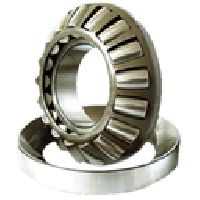
Thrust roller bearing
Thrust ball bearings, composed of ball bearings supported in a ring, can be used in low thrust applications where there is little axial load. Cylindrical thrust roller bearings consist of small cylindrical rollers arranged flat with their axes pointing to the axis of the bearing. They give very good carrying capacity and are cheap, but tend to wear due to the differences in radial speed and friction which is higher than with ball bearings. Tapered roller thrust bearings consist of small tapered rollers arranged so that their axes all converge at a point on the axis of the bearing. The length of the roller and the diameter of the wide and the narrow ends and the angle of rollers need to be carefully calculated to provide the correct taper so that each end of the roller rolls smoothly on the bearing face without skidding. These are the type most commonly used in automotive applications (to support the wheels of a motor car for example), where they are used in pairs to accommodate axial thrust in either direction, as well as radial loads. They can support rather larger thrust loads than the ball type due to the larger contact area, but are more expensive to manufacture.
...more
Tapered Roller Bearings
Taper roller bearings have tapered inner and outer ring raceways between which tapered rollers are arranged. If extended, the tapered surfaces converge towards a single point on the bearing axis. This means that rolling conditions are at an optimum. Their design makes taper roller bearings particularly suitable for the accommodation of combined (radial and axial) loads. The axial load carrying capacity of the bearings is largely determined by the contact angle a, which corresponds to the angle of the outer ring raceway. The larger this angle, the larger the axial load carrying capacity. Taper roller bearings are generally of separable design, i.e. the inner ring with roller and cage assembly forms a unit, which can be mounted separately from the outer ring.
...more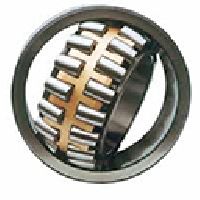
Spherical Roller Bearings
A spherical roller bearing is a rolling-element bearing that permits rotation with low friction, and permits angular misalignment. Typically these bearings support a rotating shaft in the [bore] of the inner ring that may be misaligned in respect to the outer ring. The misalignment is possible due to the spherical internal shape of the outer ring and spherical rollers.
...more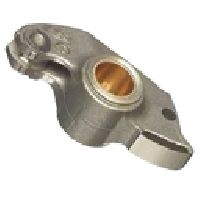
Rocker Arms Rocker Shaft
A rocker arm (in the context of an internal combustion engine of automotive, marine, motorcycle and reciprocating aviation types) is an oscillating lever that conveys radial movement from the cam lobe into linear movement at the poppet valve to open it. One end is raised and lowered by a rotating lobe of the camshaft (either directly or via a tappet (lifter) and pushrod) while the other end acts on the valve stem. When the camshaft lobe raises the outside of the arm, the inside presses down on the valve stem, opening the valve. When the outside of the arm is permitted to return due to the camshafts rotation, the inside rises, allowing the valve spring to close the valve.
...more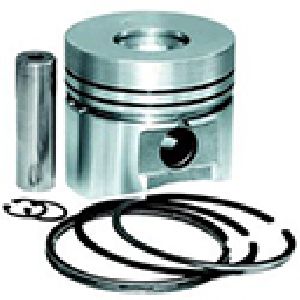
Piston Ring Set
When reconditioning engines, Piston Ring sets are an important component. For intermediate reconditioning of engines with liners we recommend to check further usability of the pistons and to replace the piston rings and cylinder liners. This ensures run-in of the piston rings with the sliding surface of the cylinder liner. In general, a distinction is made between compression rings, scraper rings and oil control rings. They all have the primary task to seal off combustion chamber and crankcase against each other. The compression rings are to prevent combustion gases from getting into the crankcase from the combustion chamber. Scraper rings combine the function of the compression rings and the oil control rings; so in essence they keep combustion gases away from the crankcase and wipe off excess oil on the cylinder wall.
...more
Needle Roller Bearings
A needle roller bearing is a bearing which uses small cylindrical rollers.The difference between a needle roller bearing and roller bearing is the ratio of diameter and length of their rollers, when the ratio of the diameter and the length of roller of a roller bearing is between the interval of 0.1 to 0.4, that roller bearing is called a needle roller bearing. They are used to reduce the friction of a rotating surface. Needle bearings have a large surface area that is in contact with the bearing outer surfaces compared to ball bearings. Additionally there is less added clearance (difference between the diameter of the shaft and the diameter of the bearing) so they are much more compact. The typical structure consists of a needle cage which orients and contains the needle rollers, the needle rollers themselves, and an outer race (sometimes the housing itself). Radial needle bearings are cylindrical and use rollers parallel to the axis of the shaft. Thrust needle bearings are flat and use a radial pattern of needles.
...more
GUDDGEN PIN BUSH
In internal combustion engines, the gudgeon pin (UK, wrist pin US) connects the piston to the connecting rod and provides a bearing for the connecting rod to pivot upon as the piston moves. In very early engine designs (including those driven by steam and also many very large stationary or marine engines),
...more
Fuel Injection
Fuel injection is a system for admitting fuel into an internal combustion engine. It has become the primary fuel delivery system used in automotive engines, having replaced carburetors during the 1980s and 1990s. A variety of injection systems have existed since the earliest usage of the internal combustion engine. The primary difference between carburetors and fuel injection is that fuel injection atomizes the fuel by forcibly pumping it through a small nozzle under high pressure, while a carburetor relies on suction created by intake air accelerated through a Venturi tube to draw the fuel into the airstream.
...more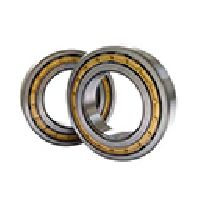
Cylindrical Roller Bearing
A rolling-element bearing, also known as a rolling bearing,[1] is a bearing which carries a load by placing rolling elements (such as balls or rollers) between two bearing rings called races. The relative motion of the races causes the rolling elements to roll with very little rolling resistance and with little sliding. One of the earliest and best-known rolling-element bearings are sets of logs laid on the ground with a large stone block on top. As the stone is pulled, the logs roll along the ground with little sliding friction. As each log comes out the back, it is moved to the front where the block then rolls on to it. It is possible to imitate such a bearing by placing several pens or pencils on a table and placing an item on top of them. See "bearings" for more on the historical development of bearings.
...more
Cylinder Liner
A cylinder is the central working part of a reciprocating engine or pump, the space in which a piston travels. Multiple cylinders are commonly arranged side by side in a bank, or engine block, which is typically cast from aluminum or cast iron before receiving precision machine work. Cylinders may be sleeved (lined with a harder metal) or sleeveless (with a wear-resistant coating such as Nikasil). A sleeveless engine may also be referred to as a "patent-bore engine"
...more
Connecting Rod
In a reciprocating piston engine, the connecting rod or conrod connects the piston to the crank or crankshaft. Together with the crank, they form a simple mechanism that converts reciprocating motion into rotating motion.
...more
CLUTCH RELEASE BALL BEARING
Clutch Release bearings consist of small cylindrical rollers arranged flat with their axes pointing to the axis of the bearing. They give very good carrying capacity and are cheap, but tend to wear due to the differences in radial speed and friction which is higher than with ball bearings
...more
C.R. BEARING
500 - 1,500 Per Pair
Bearings with a cage can accommodate heavy radial loads, rapid accelerations and high speeds. Full complement bearings incorporate a maximum number of rollers and are therefore suitable for very heavy radial loads at moderate speeds.
Material : MS
Finishing : Polished
Color : White
Condition : New
Automatic Grade : Manual
Usage : Industrial
Packaging Type : Packet
Type : Connecting Rod Bearing
Country of Origin : India
...more
Ball Bearings
A ball bearing is a type of rolling-element bearing that uses balls to maintain the separation between the bearing races. The purpose of a ball bearing is to reduce rotational friction and support radial and axial loads. It achieves this by using at least two races to contain the balls and transmit the loads through the balls. In most applications, one race is stationary and the other is attached to the rotating assembly (e.g., a hub or shaft). As one of the bearing races rotates it causes the balls to rotate as well. Because the balls are rolling they have a much lower coefficient of friction than if two flat surfaces were sliding against each other. Ball bearings tend to have lower load capacity for their size than other kinds of rolling-element bearings due to the smaller contact area between the balls and races. However, they can tolerate some misalignment of the inner and outer races.
...more
Angular Contact Bearing
A ball bearing is a type of rolling-element bearing that uses balls to maintain the separation between the bearing races. The purpose of a ball bearing is to reduce rotational friction and support radial and axial loads. It achieves this by using at least two races to contain the balls and transmit the loads through the balls. In most applications, one race is stationary and the other is attached to the rotating assembly (e.g., a hub or shaft). As one of the bearing races rotates it causes the balls to rotate as well. Because the balls are rolling they have a much lower coefficient of friction than if two flat surfaces were sliding against each other. Ball bearings tend to have lower load capacity for their size than other kinds of rolling-element bearings due to the smaller contact area between the balls and races. However, they can tolerate some misalignment of the inner and outer races.
...moreBe first to Rate
Rate ThisOpening Hours